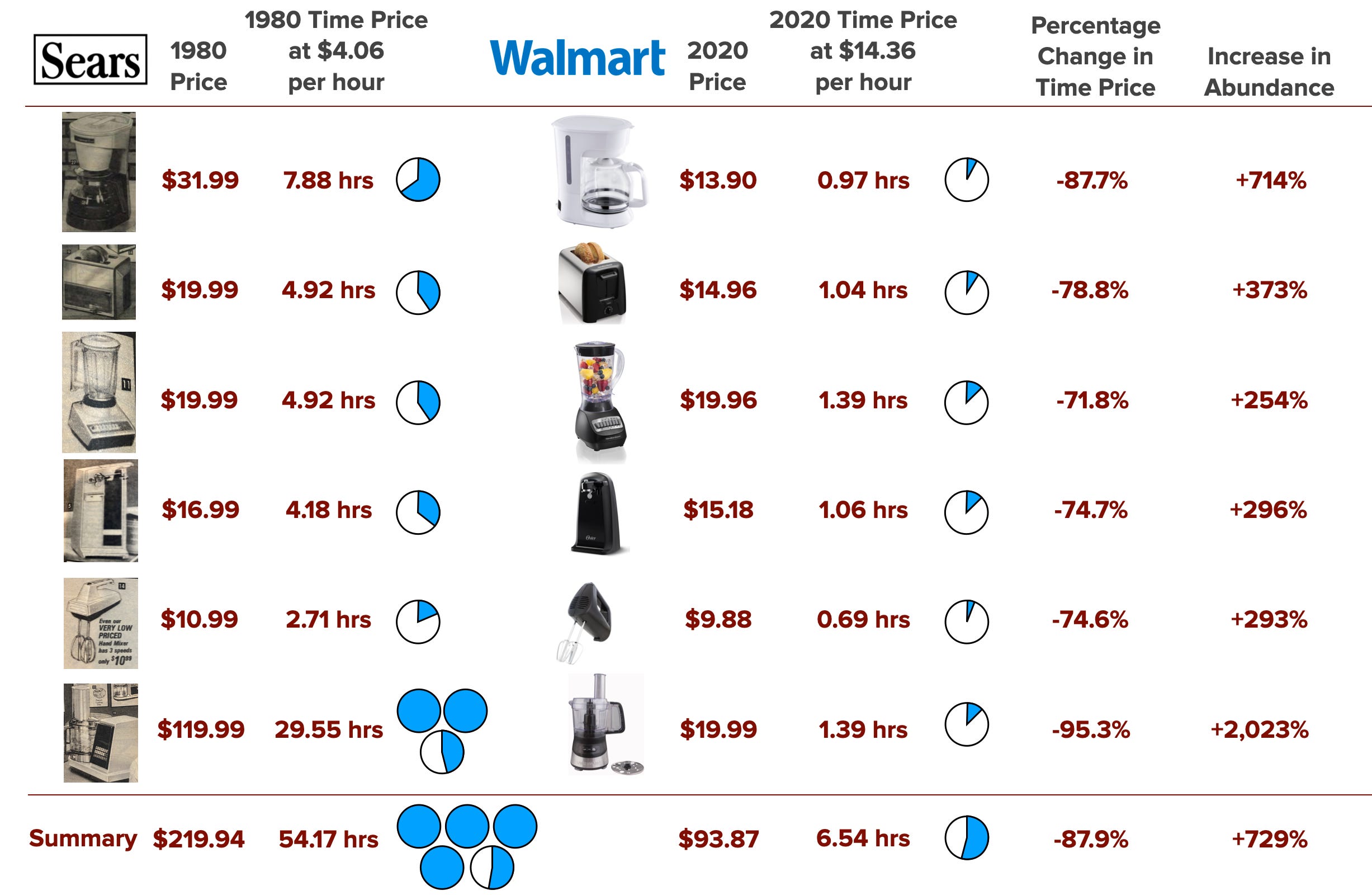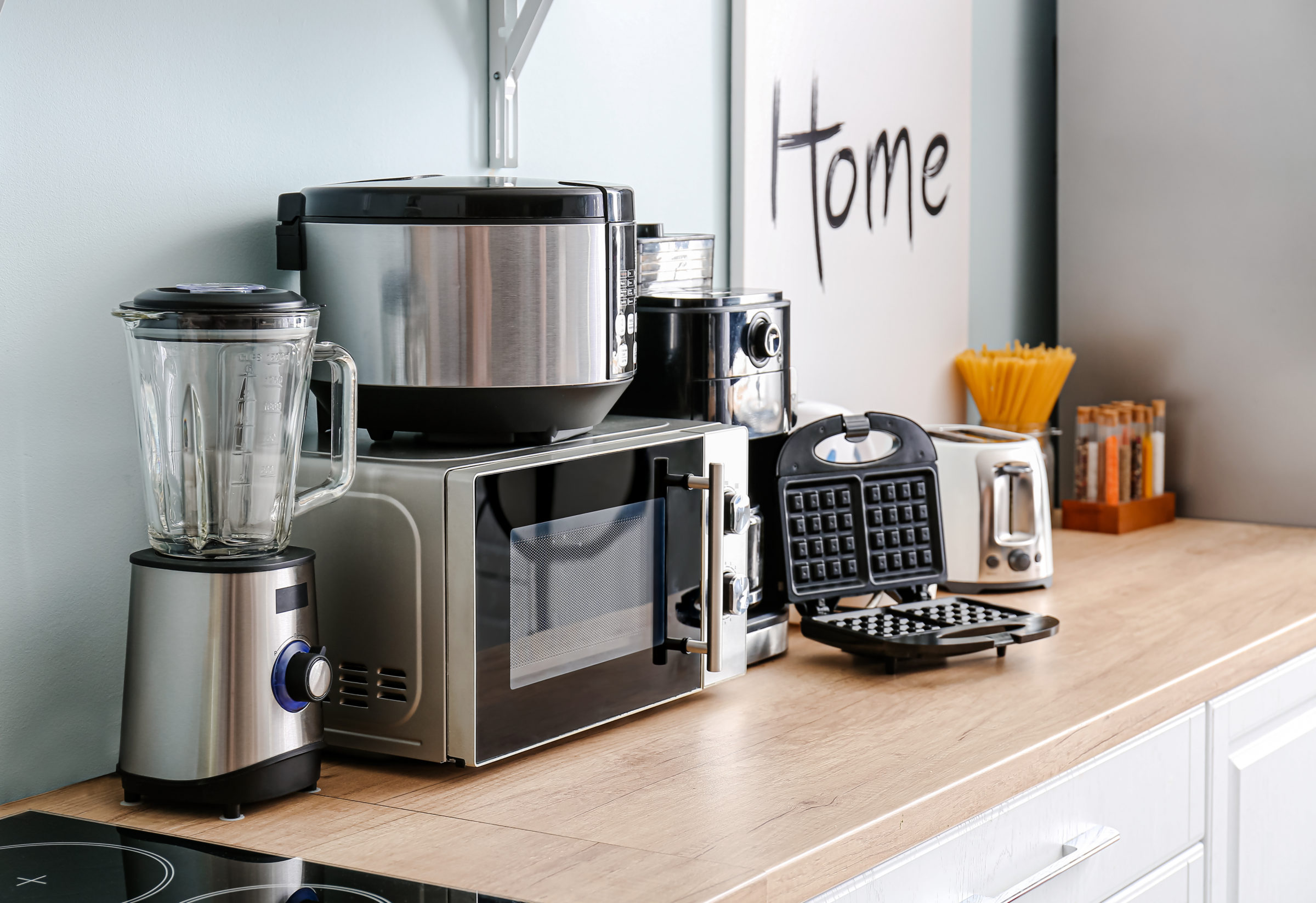Wealth & Poverty Review Kitchen Appliance Abundance
Comparing time prices in the 1980 Sears catalog to Walmart in 2020 indicates a 729 percent increase in abundance. Originally published at SubstackHas innovation improved kitchen appliances? To answer this questions, we went back to the 1980 Sears Fall Winter Catalog and looked at the prices for a variety of kitchen appliances including a coffeemaker, toaster, blender, can opener, mixer, and food processor. The total cost to buy all of these items was $219.94. In 1980 unskilled workers were earning around $4.06 per hour, so it took 54.17 hours of work to equip your kitchen with these modern appliances.
We then searched Walmart’s website to find similar items. The nominal prices in 2020 for the six items had dropped 57.32 percent to $93.87. However, nominal unskilled wages had increased 253.7 percent to $14.36 an hour, so it only took 6.54 hours of work to buy these six appliances in 2020. The time price had fallen by 87.9 percent. Kitchen appliance abundance increased an average of 729 percent, from 254 percent for blenders to 2,023 percent for food processors. Here is a detail of our findings and analysis:

For the time required to buy a set of these appliances for one house in 1980, you could furnish 8.29 houses in 2020. Abundance in the kitchen has been increasing at a compound annual rate of around 5.43 percent a year. At this rate abundance doubles every 13 years.
As you prepare your dinner this evening, take a moment and thank the many kitchen appliance innovators who have given every home an extra 47.63 hours of life to enjoy.

